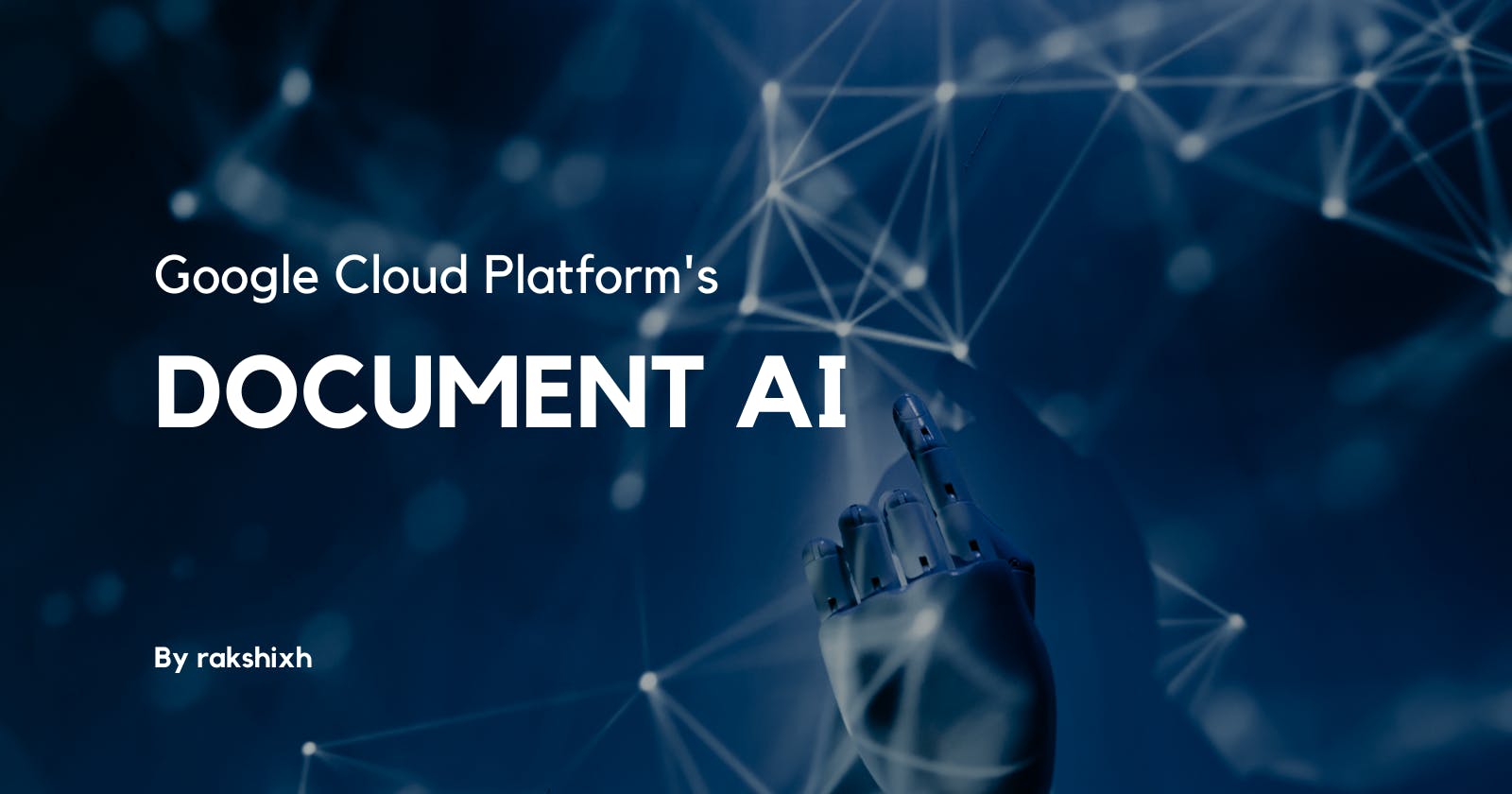Document AI (Artificial Intelligence) is a Google Cloud Platform (GCP) service that leverages machine learning to extract data from documents. This technology enables users to automate document processing workflows and enhance their data analysis capabilities. Document AI offers the potential to simplify a variety of business processes, from invoice processing to legal document analysis.
In this blog post, we will explore the features of Document AI, as well as its use cases, benefits, and limitations.
Features of Document AI
Document AI offers several features that make it a valuable tool for organizations looking to streamline their document-processing workflows. Some of the key features of Document AI include:
Automated data extraction: Document AI uses machine learning to identify and extract data from a variety of document types, including PDFs, images, and Microsoft Office files. This can help organizations save time and reduce errors associated with manual data entry.
Customizable models: Document AI allows users to train custom machine learning models to recognize specific document types and extract relevant data. This can be particularly useful for organizations that process large volumes of documents with unique formatting.
Multi-language support: Document AI supports over 50 languages, making it a versatile tool for organizations operating in multilingual environments.
Integration with other GCP services: Document AI can be integrated with other GCP services, such as Google Cloud Storage and Google BigQuery, to streamline document processing workflows and enhance data analysis capabilities.
Use Cases for Document AI
Document AI can be applied to a wide range of business use cases, including:
Invoice processing: Document AI can be used to extract data from invoices, such as vendor name, invoice number, and line item details. This can help organizations automate their accounts payable workflows and reduce errors associated with manual data entry.
Legal document analysis: Document AI can be used to analyze legal documents, such as contracts and court filings, to extract relevant data points, such as parties involved, dates, and clauses. This can help law firms and legal departments streamline their document review workflows and improve their contract management processes.
Healthcare record processing: Document AI can be used to extract data from healthcare records, such as patient names, medical conditions, and treatment plans. This can help healthcare providers automate their medical record processing workflows and improve their patient care delivery.
Customer support: Document AI can be used to analyze customer support tickets and emails to extract relevant information, such as customer name, issue type, and resolution status. This can help organizations improve their customer support processes and enhance customer satisfaction.
Benefits of Document AI
Implementing Document AI can provide a range of benefits for organizations, including:
Increased efficiency: Document AI can help organizations automate their document processing workflows, reducing the need for manual data entry and saving time.
Reduced errors: Automated data extraction can help reduce errors associated with manual data entry, leading to more accurate data analysis and decision-making.
Customizable models: Document AI allows users to train custom machine learning models, enabling them to recognize specific document types and extract relevant data.
Versatility: Document AI supports over 50 languages and can be applied to a variety of document types, making it a versatile tool for organizations operating in multilingual environments.
Limitations of Document AI
While Document AI offers a range of benefits, it also has some limitations to consider, including:
Cost: Implementing Document AI can be expensive, particularly for organizations that process large volumes of documents.
Accuracy: While Document AI is generally accurate, it may not be able to recognize all document types or extract all relevant data points.
Technical expertise: Implementing Document AI requires technical expertise in machine learning and data processing, which may be a barrier for some organizations.
Conclusion
Document AI is a powerful tool for organizations looking to automate.
